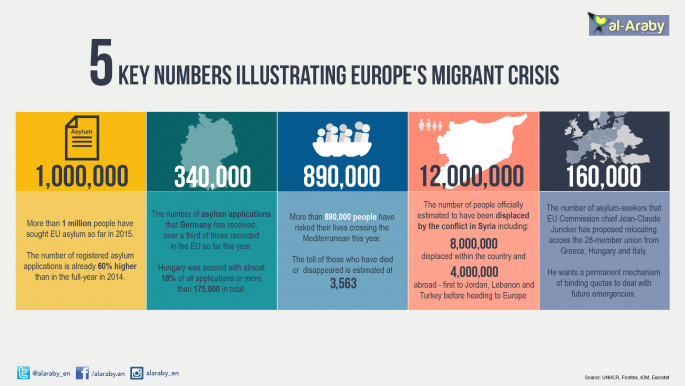Libya's unity government seeks Turkey-style EU accord on refugees
Libya's Vice President Ahmed Maetig said he hopes to secure an agreement to help stem the flow of migrants to Europe, similar to a controvesial deal between the European Union and Turkey.
Maetig made the appeal while in Rome to meet Italy's Interior Minister Angelino Alfano.
"The vice president has asked that we proceed with an agreement between the European Union and Libya based on the one between the European Union and Turkey," a statement by Alfano read, without giving further details.
According to the 18 March agreement, Turkey agreed to take back refugees arriving on Greek islands, in an effort to relieve the pressure on the European Union. Since early 2015, at least one million migrants arrived in Europe.
In return, Europe promised to resettle one Syrian refugee for every Syrian taken back by Turkey. They also pledged to grant visa-free travel to Turks within the border-free Schengen zone and reassess Turkey's stalled EU membership bid.
However, human rights and aid groups have criticised the deal, and raised concerns about the possibility of deporting refugees back to war zones.
 |
Human rights and aid groups have criticised the Turkish migrant deal, and raised concerns about the possibility of deporting refugees back to war zones |  |
Meanwhile, Maetig "thanked Italy for aiding the Libyan people", and said he hoped Rome would play a key role in the efforts to reach a deal between rival government factions.
 |
| Click to enlarge |
Alfano added that the two countries had also agreed to work together to combat terrorism and human trafficking.
Libya has had two rival administrations - one in Tobruk and one in Tripoli -since a militia alliance took over the capital in mid-2014. The council set up its own authority and forced members of the elected parliament to flee to Tobruk.
Last month a new UN-backed unity government arrived in Tripoli, with Italian Foreign Minister Paolo Gentiloni the first top Western official to visit its president, Fayez al-Sarraj.
The international community sees the UN-backed interim Government of National Accord as the best hope in ending five years of fighting in the oil-rich, which is increasingly at risk of an extremist takeover.
Meanwhile, thousands of migrants - many from sub-Saharan Africa - have used Libya as a launchpad to reach Italy, making the North African state a key concern for Europe.


![A Palestinian girl stands amid the rubble of her destroyed home on 24 May 2021 in Beit Hanoun, Gaza. [Getty]](/sites/default/files/styles/image_330x185/public/2021-06/GettyImages-1233090336.jpg?h=a4507e6b&itok=eFmdLkDh)
